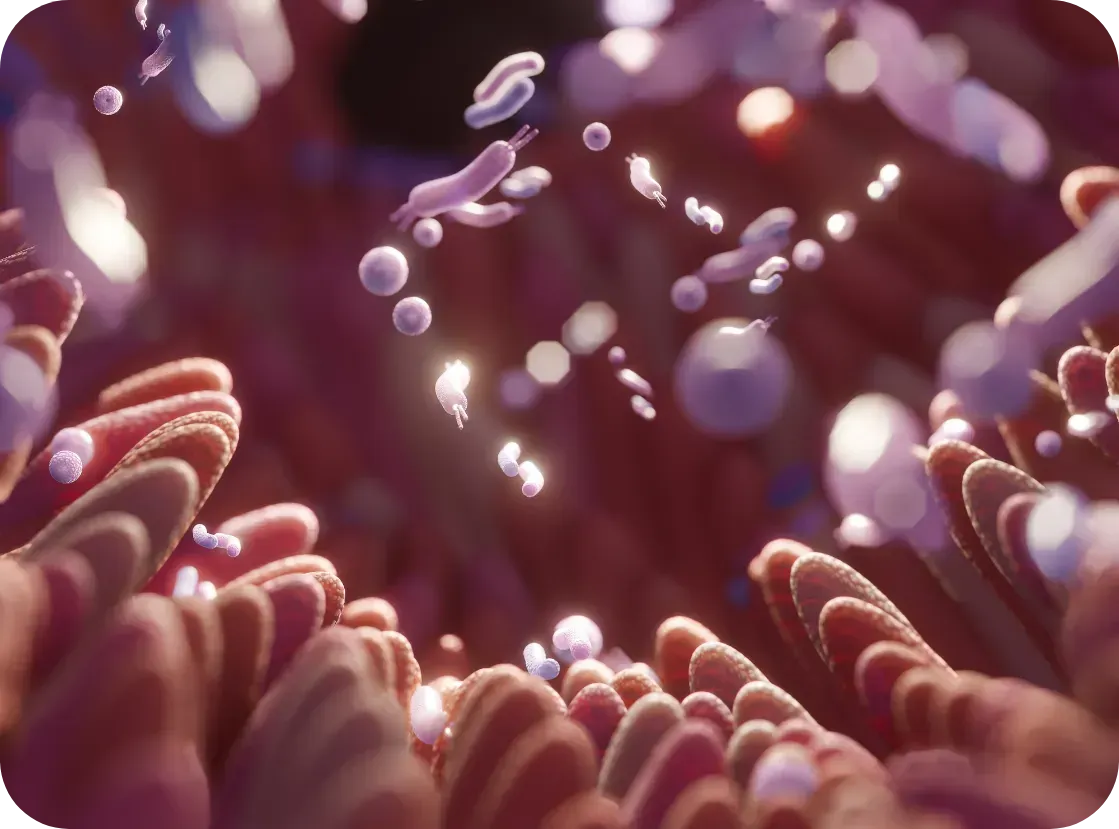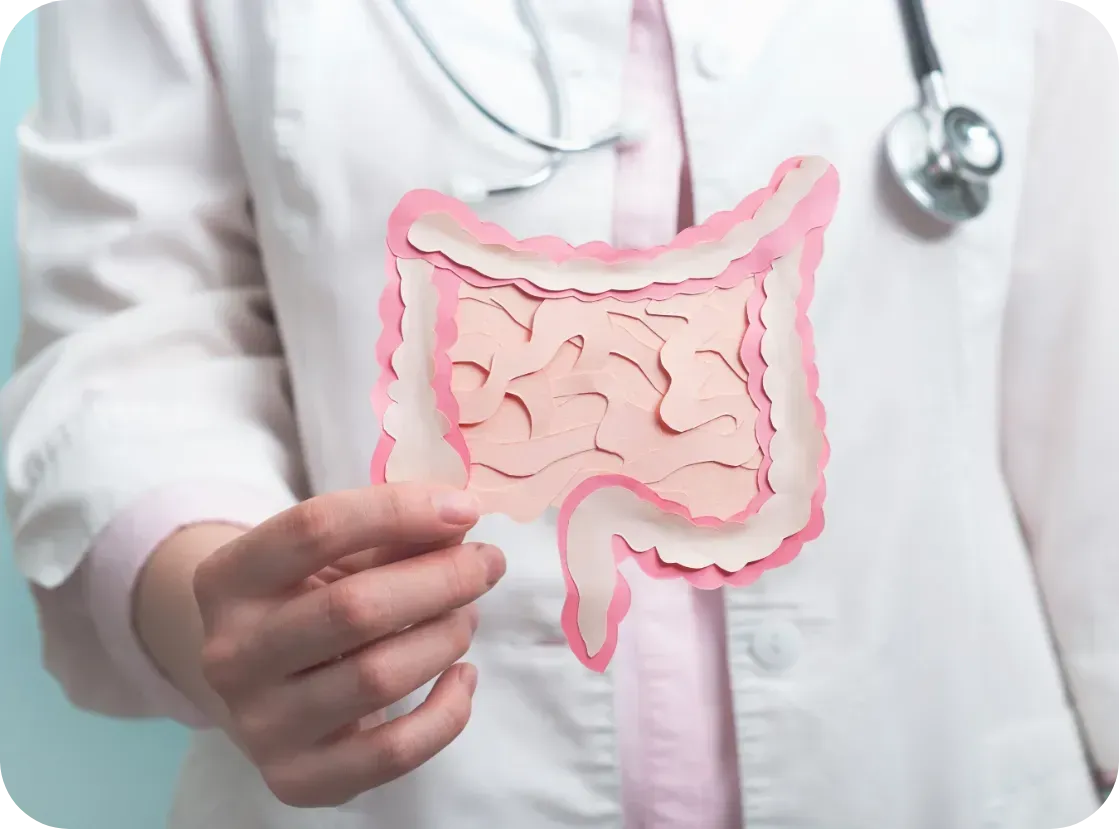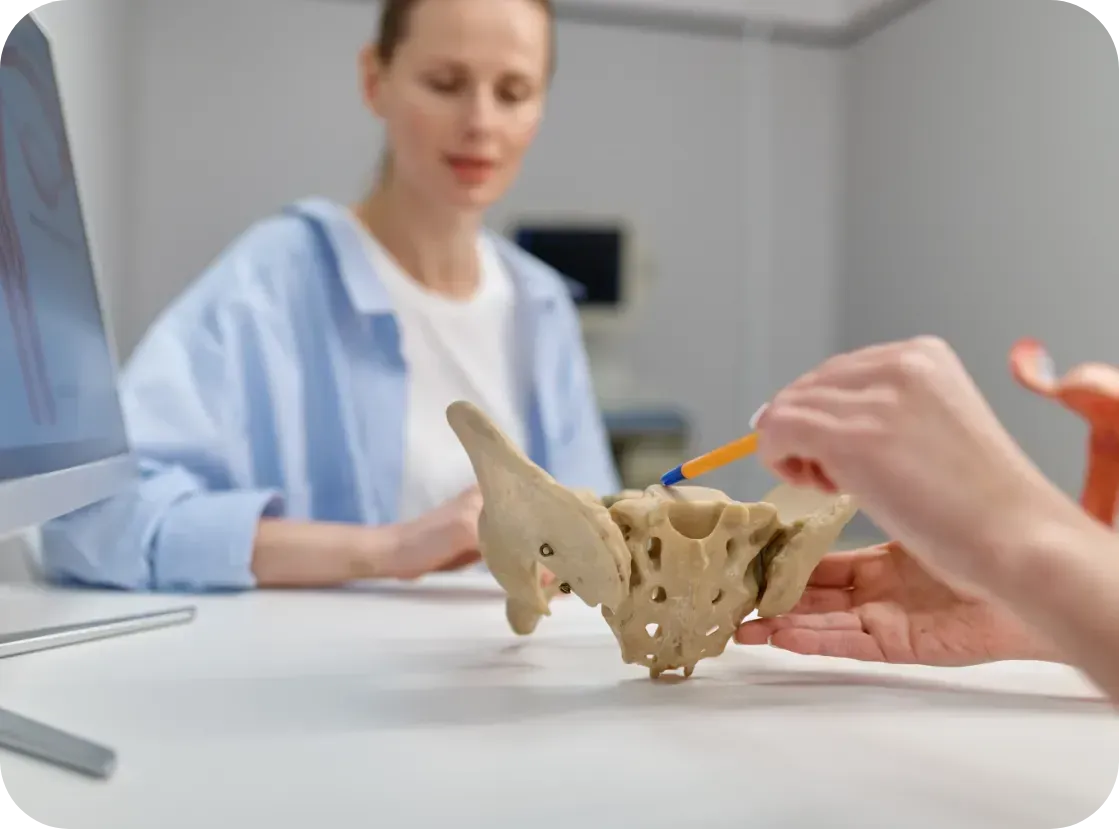GUT FEELINGS: The Hidden Link Between Gut Health and Hormonal Imbalance
By Our Daughters Foundation
GUT FEELINGS: The Hidden Link Between Gut Health and Hormonal Imbalance
By Our Daughters Foundation
1. The Gut Microbiome: Your Internal Ecosystem
Your gut isn’t just a tube for digesting food. It’s home to trillions of bacteria that:
• Help break down food
• Make key nutrients (like B vitamins)
• Train your immune system
• And — importantly — regulate estrogen levels
This bacterial community is called the gut microbiome, and when it’s healthy and diverse, it supports balanced hormones. But when the microbiome is out of balance — a condition called dysbiosis — problems can arise.

2. Estrobolome: The Gut’s Hormone Filte
Inside the gut, a specific group of bacteria known as the estrobolome helps process estrogen. These bacteria produce enzymes (like beta-glucuronidase) that influence how much estrogen is reabsorbed into the bloodstream versus excreted.
When the estrobolome is overactive or underactive, it can lead to:
• Excess circulating estrogen → linked to endometriosis, fibroids, PMS, and breast tendernes
• Too little estrogen → contributing to mood changes, bone loss, and vaginal dryness
So a disrupted gut can directly amplify hormonal imbalances.
3. Inflammation: The Common Denominator
Both gut dysbiosis and endometriosis are associated with chronic inflammation. When the gut barrier is weakened (a condition sometimes called “leaky gut”), it allows inflammatory molecules to pass into the bloodstream. This triggers an immune response — and in people with endometriosis or PCOS, it can worsen pelvic pain, fatigue, and hormonal chaos.

4. What the Research Says
While this field is still developing, early studies have found:
• Women with endometriosis often have altered gut microbiomes compared to those without the condition. [Study: Ata et al., 2019, Scientific Reports]
• A high-fiber, plant-rich diet may help support a more balanced gut flora and improve estrogen metabolism. [Study: Fuhrman et al., 2004, Journal of Nutrition]
• Some researchers are exploring probiotic therapy as a future tool for managing hormone-related conditions.
5. What Can You Do?
You can’t fully control your hormones — but you can support your gut.
Here are some gut-friendly, hormone-supporting habits:
• Eat more fiber: vegetables, fruits, legumes, and seeds
• Avoid excessive sugar and processed foods
• Include fermented foods: yogurt, kefir, sauerkraut, kimchi
• Consider a probiotic — talk to your provider first
• Manage stress — cortisol (the stress hormone) also affects gut balance
• Support liver detoxification (which works with your gut to clear estrogen): eat cruciferous vegetables like broccoli and cauliflower

Final Thoughts
The gut isn’t just about digestion — it’s a key player in how your body handles hormones, pain, and inflammation.
If you’re struggling with endometriosis, PCOS, or unexplained hormone symptoms, supporting your gut might be an empowering place to start.
Want to Learn More?
Here are some helpful articles and research:
• The Gut Microbiome and Estrogen Metabolism – NIH
https://www.ncbi.nlm.nih.gov/pmc/articles/PMC6471213/
• Gut Microbiota and Endometriosis – Scientific Reports
https://www.nature.com/articles/s41598-019-39645-2
• How the Gut Influences Hormones – Integrative Medicine Journal
1. The Gut Microbiome: Your Internal Ecosystem
Your gut isn’t just a tube for digesting food. It’s home to trillions of bacteria that:
• Help break down food
• Make key nutrients (like B vitamins)
• Train your immune system
• And — importantly — regulate estrogen levels
This bacterial community is called the gut microbiome, and when it’s healthy and diverse, it supports balanced hormones. But when the microbiome is out of balance — a condition called dysbiosis — problems can arise.

2. Estrobolome: The Gut’s Hormone Filte
Inside the gut, a specific group of bacteria known as the estrobolome helps process estrogen. These bacteria produce enzymes (like beta-glucuronidase) that influence how much estrogen is reabsorbed into the bloodstream versus excreted.
When the estrobolome is overactive or underactive, it can lead to:
• Excess circulating estrogen → linked to endometriosis, fibroids, PMS, and breast tendernes
• Too little estrogen → contributing to mood changes, bone loss, and vaginal dryness
So a disrupted gut can directly amplify hormonal imbalances.
3. Inflammation: The Common Denominator
Both gut dysbiosis and endometriosis are associated with chronic inflammation. When the gut barrier is weakened (a condition sometimes called “leaky gut”), it allows inflammatory molecules to pass into the bloodstream. This triggers an immune response — and in people with endometriosis or PCOS, it can worsen pelvic pain, fatigue, and hormonal chaos.

4. What the Research Says
While this field is still developing, early studies have found:
• Women with endometriosis often have altered gut microbiomes compared to those without the condition. [Study: Ata et al., 2019, Scientific Reports]
• A high-fiber, plant-rich diet may help support a more balanced gut flora and improve estrogen metabolism. [Study: Fuhrman et al., 2004, Journal of Nutrition]
• Some researchers are exploring probiotic therapy as a future tool for managing hormone-related conditions.
5. What Can You Do?
You can’t fully control your hormones — but you can support your gut.
Here are some gut-friendly, hormone-supporting habits:
• Eat more fiber: vegetables, fruits, legumes, and seeds
• Avoid excessive sugar and processed foods
• Include fermented foods: yogurt, kefir, sauerkraut, kimchi
• Consider a probiotic — talk to your provider first
• Manage stress — cortisol (the stress hormone) also affects gut balance
• Support liver detoxification (which works with your gut to clear estrogen): eat cruciferous vegetables like broccoli and cauliflower

Final Thoughts
The gut isn’t just about digestion — it’s a key player in how your body handles hormones, pain, and inflammation.
If you’re struggling with endometriosis, PCOS, or unexplained hormone symptoms, supporting your gut might be an empowering place to start.
Want to Learn More?
Here are some helpful articles and research:
• The Gut Microbiome and Estrogen Metabolism – NIH
https://www.ncbi.nlm.nih.gov/pmc/articles/PMC6471213/
• Gut Microbiota and Endometriosis – Scientific Reports
https://www.nature.com/articles/s41598-019-39645-2
• How the Gut Influences Hormones – Integrative Medicine Journal
Join Us: Make a Difference Today
Your support can transform lives. Every donation helps us fund research, advocate for better care, and provide essential grants to women facing debilitating conditions.
Join Us: Make a Difference Today
Your support can transform lives. Every donation helps us fund research, advocate for better care, and provide essential grants to women facing debilitating conditions.

Breaking the Silence: Why Endometriosis Took So Long to Be Taken Seriously and What’s Finally Changing
What Is Endometriosis—and Why Has It Been Ignored for So Long

Endometriosis is a chronic, often painful condition where tissue similar to the lining of the uterus grows outside the uterus—on the ovaries, fallopian tubes, pelvic lining, and sometimes even beyond. This tissue responds to hormonal changes, leading to inflammation, scarring, and severe pain.
Despite affecting roughly 1 in 10 women of reproductive age worldwide, endometriosis has historically been misunderstood, underdiagnosed, and mistreated.
World Health Organization Fact Sheet on Endometriosis:
https://www.who.int/news-room/fact-sheets/detail/endometriosis
The Average Time to Diagnosis? Still Over 7 Years.
That’s not a typo. On average, it takes 7 to 10 years from the first symptoms to a correct diagnosis. Why?
• Symptoms are often normalized: Severe period pain? “Just part of being a woman.”
• Lack of non-invasive testing: Diagnosis has long relied on laparoscopic surgery.
• Medical gaps: Many healthcare providers, including OB-GYN’s, receive limited training in gynecologic pain conditions.
NIH: Delays in Endometriosis Diagnosis: https://pubmed.ncbi.nlm.nih.gov/32147966/
What Are the Symptoms of Endometriosis?

Every woman’s experience is different, but some of the most common symptoms include:
• Intense pelvic or abdominal pain
• Pain during or after sex
• Heavy or irregular periods
• Chronic fatigue
• Gastrointestinal issues like bloating, nausea, or constipation
• Infertility or difficulty conceiving
What’s Finally Changing? Promising Breakthroughs (2024–2025)

Diagnostic Tools
• MicroRNA panels and blood-based biomarkers are showing promise as non-invasive ways to detect endometriosis earlier.
• Advanced imaging like high-resolution MRI and ultrasound with specialized protocols are helping detect lesions more reliably.
Endometriosis Foundation - Emerging Research: https://www.endofound.org/news-research
PubMed - Biomarkers in Endometriosis: https://pubmed.ncbi.nlm.nih.gov/30807918/
AI & Machine Learning
Artificial intelligence is being trained to analyze symptom patterns, scan images, and even detect potential markers in menstrual blood—offering hope for faster, more accurate screening in the near future.
More Funding and Advocacy
• Governments and nonprofits are increasing research grants.
• Social media and support groups are amplifying women’s voices and experiences.
• Healthcare providers are receiving more training in pelvic pain and minimally invasive surgical options like excision surgery.
What This Means for You (or Someone You Love)
Faster, less invasive diagnosis is on the horizon.
Women are being believed and supported more than ever.
With better understanding comes more targeted treatment options, like hormonal therapies, dietary approaches, pelvic floor therapy, and expert excision surgery.
What You Can Do Right Now
1. Track your symptoms: Keep a daily journal of pain, mood, fatigue, and cycle details.
2. Advocate for yourself: Ask your doctor about excision surgery vs. ablation. A specialist is necessary for proper endometriosis care. Unfortunately, your typical OB-GYN is not an endometriosis or excision specialist.
3. Get support: You're not alone. Online communities and advocacy organizations offer connection and practical help.
Nancy’s Nook Endometriosis Education Group: https://www.facebook.com/groups/NancysNookEndoEd
Center for Endometriosis Care: https://www.centerforendo.com/
Why This Matters
Endometriosis is a whole-body disease that can affect a woman’s physical, emotional, and reproductive health. We are just starting to make some noise & bring attention to this disease and other hormonal diseases related to it.
“The future of women’s health is shifting—but only if we keep raising our voices.”
